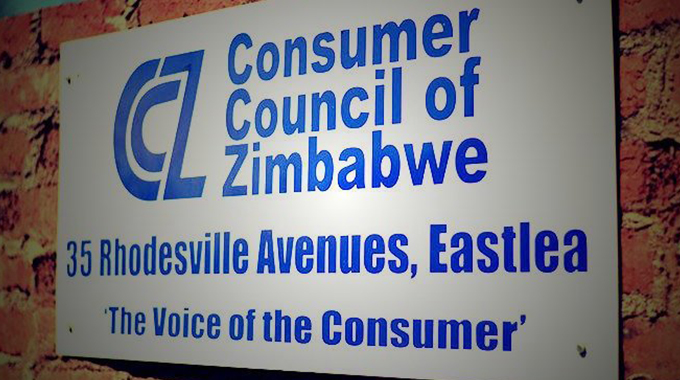Consumers commend prevailing price stability

Sikhulekelani Moyo and Michael Makuza, Business Reporters
CONSUMERS have commended the prevailing exchange rate and pricing stability in response to Government measures and urged businesses to continue adjusting their charges downward in line with the drop in costs of doing business.
Given the continued drop in fuel price, which had been a major cost driver, and clampdown on speculative parallel market activity, which drove wild exchange rate movement and inflation, most businesses have started reducing prices.

According to ZimStats’ latest report, Zimbabwe’s inflation has tumbled to 3.5 percent monthly as of September from 12.4 percent in August. Similarly, the Central Bank has indicated a drastic narrowing of the exchange rate disparity between official and parallel market rates, which are projected to converge at around 1:650 to 1:750.
The Government’s value for money policy on public tenders and tight control on money supply have also come in handy in tackling forward pricing of goods and services, thereby easing inflationary pressures.
A survey this week has also shown that basic product pricing has remained stable for the past weeks. For example, the price of a 2-litre bottle of cooking oil has dropped to about $2 799 from a peak of $3 400 or more in the past weeks while 2-litre Mazoe drink is now pegged from as low as $1 800 from a peak of $2 500 depending on brands and outlets.
Other basic commodities such as sugar, laundry soap, mealie-meal, bread and salt continue to maintain a stable price with slight variations.
Consumer Council of Zimbabwe (CCZ) Matabeleland regional manager, Mr Comfort Muchekeza, applauded businesses who have passed the cost reduction impact to consumers although margins are still small.
“Over the past few weeks, we have been witnessing a downward review of most basic commodities, notably cooking oil, rice, sugar beans and flour just to mention a few, though with a very small margin. They have at least reduced and we always say to consumers every cent counts,” he said.

Mr Muchekeza, however, expressed concern over continuous selling of some local products in forex only saying this was frustrating consumers and promoting smuggling.
“While some products are being reviewed downwards sugar is being reviewed upwards and in most retail outlets such as Choppies and other smaller retailers Hulett sugar is only sold in United States dollars and local currency is not accepted. This is a cause for concern,” he said.
“Funny enough we have some sugar from the region, which is being sold at local currency. We have a challenge with this imported sugar as you might be aware all sugar should be fortified but the imported sugar is not fortified.”
Recently Buy Zimbabwe also expressed concern over the proliferation of unfortified sugar imports in the market saying unfortified brands are contravening Sections 4 and 5 of Statutory Instrument (SI) 120 of 2016, which requires that sugar be fortified with food fortificants approved by the Ministry of Health and Child Welfare.
Zimbabwe National Chamber of Commerce chairman, Mr Mackenzie Dongo, said while some companies were still using the parallel market rate to price their goods and services, they were also experiencing exchange stability.

Ministry of Health and Child Welfare.
He commended business that were adjusting their costs downwards saying this shows appreciation of ethical values in business.
“When Zim-dollar is stable there is no need for businesses to panic and engage in forward pricing,” he said.
“Remember when costs had gone up, prices also went up and now that they have gone down, prices have also gone down. Businesses will always sustain it as long as costs remain low.
“In the spirit of nation building, we urge business people to always do their business ethically. This is what we stand for as a chamber.”
Mr Dongo, however, expressed concern over inadequate electricity situation in the country, which could result in costs going up again as businesses invest in alternative power sources.











Comments